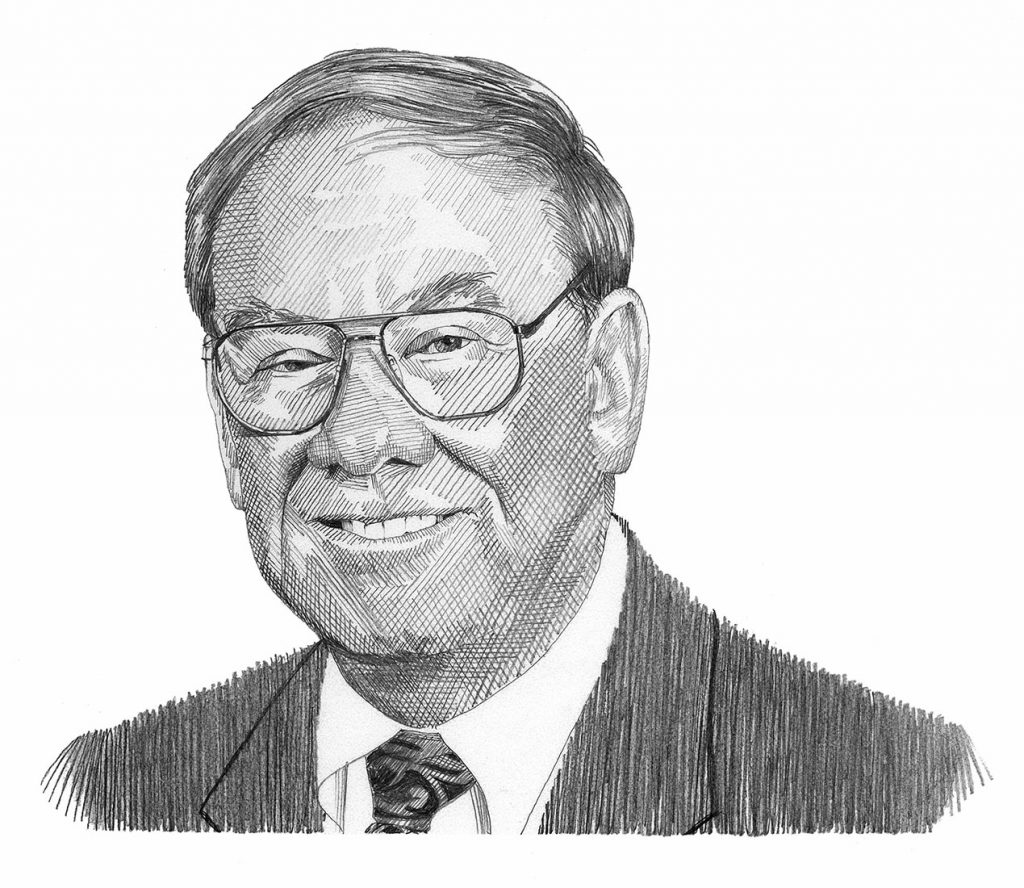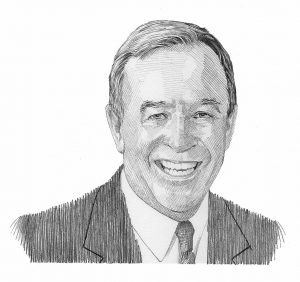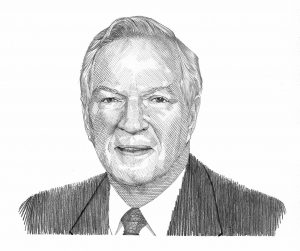The life of Thomas E. Jernigan was the proverbial American Dream. From humble beginnings in rural Alabama, Jernigan grew to become successful in every endeavor he attempted.
Born in Atmore, Alabama, in 1923, Jernigan later moved to Frisco City in Monroe County. He grew up on a farm with his brothers, Ferrell and Carl, and his sister, Loretta. After graduating from high school, Jernigan joined the United States Air Force and served two years during World War II. When he returned from military service, he attended The University of Alabama.
After completing his studies, Jernigan settled in Mountain Brook, Alabama, where he raised his family and emerged as a business leader within the community and around the Southeast.
Jernigan began his entrepreneurial endeavors by developing a line of children’s playground equipment. In 1965, he founded Plantation Pattern Co., a manufacturer of wrought iron casual furniture, which still is operating today.
Four years later, Jernigan founded United Chair Co., an office furniture manufacturer. United Chair exists today as a member of the Groupe Lacasse family of brands.
Showing no signs of slowing, in 1970, Jernigan founded Marathon Realty Co. to build and develop commercial properties. The company primarily did business in the Birmingham market in Alabama and the Fort Lauderdale and Tampa markets in Florida.
In 1971, he decided to test his skills with an additional challenge. He founded Marathon Equipment Co., a maker of commercial and industrial trash compaction equipment. During the time Jernigan was at the helm of Marathon Equipment, the company was recognized as the largest commercial trash compaction manufacturer in the world and a key supplier to some of the largest waste removal companies, such as Waste Management and BFI. Like most of Jernigan’s companies, Marathon Equipment received many awards and commendations from its suppliers.
From its original plant in Vernon, Alabama, Marathon added a new plant in Yerington, Nevada, in December 1985 and another plant in Clearfield, Pennsylvania, in 1989. The company began settling its products overseas, meeting waste management needs in Australia, Mexico, Central American, and the Middle East.
In 1972, Jernigan became CEO of Delwood Furniture, a corporation that consisted of six individual manufacturing companies specializing in home and office furniture.
Not one to rest on the laurels of his mounting business successes, Jernigan put another idea into action in 1973. He developed the concept of neighborhood convenience stores in Alabama, an idea that caught on incredibly well. Jernigan founded and built a chain of Quick Marts throughout the state.
Jernigan started yet another successful business venture in 1976 when he founded Winston Furniture Co. in Haleyville, Alabama. Winston still is a leading manufacturer of aluminum outdoor casual furniture.
The company began making basic wrought iron furniture but soon added simple aluminum furniture with vinyl straps. Winston broadened and modified the materials it used, becoming the first company to develop cushioned fabrics for outdoor use. These new fabrics contained special mildew-resistant fibers and ultraviolet light stabilizers that helped the furniture withstand the elements.
In 1982, a revolution in the casual furniture industry, with Winston at the forefront of this trend. Winston introduced sling furniture, a type of furnishing in which panels of special fabric are pulled taut through the furniture frame, resulting in sleek, comfortable, low-maintenance furniture. The Winston Furniture line includes both cushion and sling furniture in varying styles, finishes, and fabrics.
In addition to his other business ventures, Jernigan was active in the banking industry. He was an original director of the Central Bank and Trust Co., which eventually became Compass Bank. Jernigan’s longtime friend and business colleague, Harry B. Brock, president, and CEO of Compass Bank said Jernigan was instrumental in changing the state’s banking industry. He was a key player and investor in the formation of the Central and State National Corp., a move that sparked the formation of the bank-holding companies in Alabama.
In 1992, Jernigan became interested in the apparel industry. Consistent with his progressive thinking, he was able to marry this new business to a philanthropic course. Marathon Apparel was born under his hand and over a 15-year period donated more than $5 million to a variety of wildlife and conservation organizations, such as Ducks Unlimited, the Audubon Society, the Nature Conservancy, the National Turkey Foundation, Quail Unlimited, and others.
Marathon Corp. has enjoyed several years of success, and it has consistently given back to the community. In 2001, Marathon donated $1 million to the relief centers in New York City following the attack on the World Trade Center. In 1005, Marathon donated clothing and food to the victims of Hurricane Katrina and has helped flood and tornado victims across the country.
Through the Thomas E. Jernigan Foundation, a program was started in Birmingham to help churches provide holiday relief for people in need.
Throughout his life and his many successful business endeavors, Jernigan always remembered people in need. He donated generously to the United Way, the Salvation Army, the American Heart Association, the American Cancer Society, Children’s Hospital, the Big Oak Ranch, Junior Achievement, Juvenile Diabetes, Habitat for Humanity, Cornerstone Schools, and many other organizations. His grant stated the first and only camp for children with cancer in the Southeast. This was done in cooperation with Campfire USA of Central Alabama and Children’s Hospital. He also funded medical research at local hospitals. In 1995, the Association of Fundraising Professionals presented Jernigan with the William M. and Virginia B. Spencer Award for Outstanding Philanthropist. The United Way of Central Alabama honored Jernigan in 2007, awarding him membership in the Alexis de Tocqueville Society in recognition of his generous gifts.
During his long and busy career, Jernigan also gave much of his time and money to education. He was a member of the Board of Trustees for Birmingham Southern College, and in honor of his years of service, the school awarded him an honorary Doctor of Laws. He also served on the Mountain Brook City Schools Foundation board of directors and the Advisory Board at the University of Alabama at Birmingham. He established endowments at Birmingham Southern, Samford University, and The University of Alabama, both the Tuscaloosa and Birmingham campuses. These endowments created scholarships that still provide deserving college and nursing students with the opportunities to pursue higher education.
Jernigan also held memberships at country clubs throughout Alabama, Florida, and North Carolina. He enjoyed socializing with colleagues and friends in his spare time and was involved in the Birmingham Rotary Club, the Young Presidents Organization, and the ROMEOS (Retired Old Men Eating Out).
Jernigan passed away in January 2008 after battling leukemia. He is survived by his wife of 22 years, Donna Conyers Jernigan, and his four children, Thomas E. Jernigan, Jr., Lisa Jernigan Bruhn, Mary Conyers Jernigan, and Jonathan Winston Jernigan.
Jernigan remained chairman and chief executive officer of Marathon Corp. until his death.
Frank Falkenburg, a longtime business partner and friend, summed up Jernigan’s life and character: “HE was as tough and sweet a man as I have ever known. He could be the most rugged person you might meet, and then he’d write a check for some little town in Mississippi that he read about in the newspaper trying to get over Hurricane Katrina.”
Dr. Neal Berte, president emeritus, Birmingham Southern College, said of Jernigan: “By any standard, the Birmingham community and beyond have benefitted greatly from the quiet but generous philanthropy of one of our most successful businessmen, Thomas E. Jernigan is one of Birmingham’s most successful entrepreneurs and businessmen, and his legacy of leadership will live on in the future, including those who are fortunate enough to receive a Thomas E. Jernigan Honor Scholarship.”




